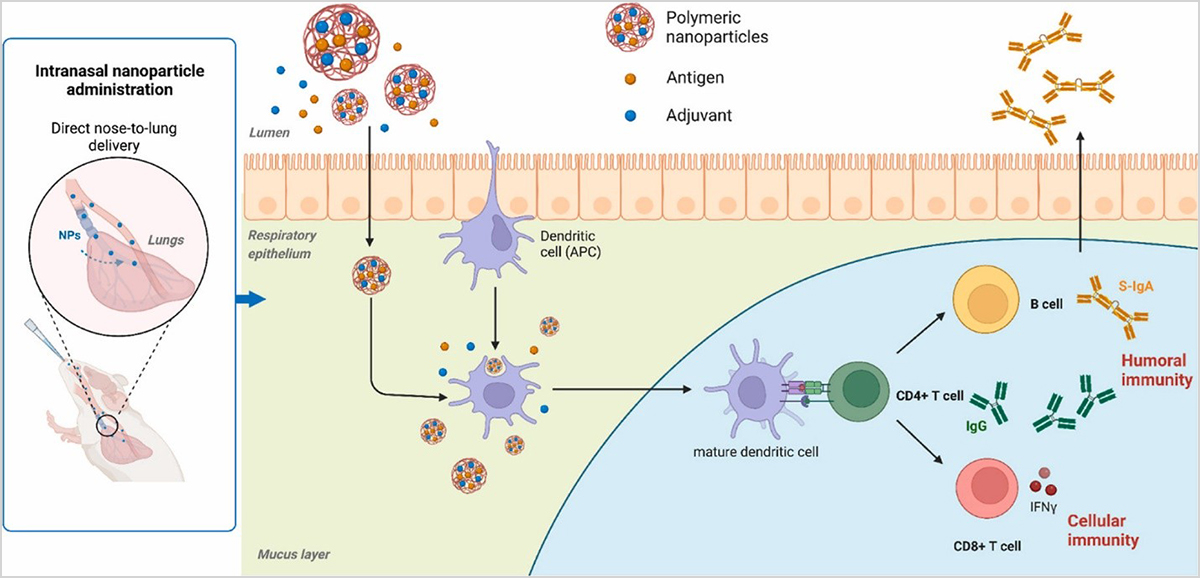header
News
Needle-Free Cancer Protection With an Inhalable Nanovaccine
- WRITER 학무부총장실

Research Professor Thavasyappan Thambi of the Graduate School of Biotechnology has developed a next-generation anticancer vaccine that induces immune memory and long-term protection without the need for injections
Professor Thavasyappan Thambi, a research professor at the Graduate School of Biotechnology, has developed a novel nanovaccine platform that can be delivered intranasally to both prevent and treat cancer. The study was published online on Apr 12, 2025, in the international journal Biomaterials (IF=14.0, top 5% in JCR) under the title, “Bioengineered metastatic cancer nanovaccine with a TLR7/8 agonist for needle-free intranasal immunization.”
Most conventional vaccines are administered by injection to induce systemic immune responses, yet they provide little direct protection at mucosal surfaces such as the nose and lungs—critical entry points for infection. Their effectiveness is particularly limited against respiratory diseases and cancers that metastasize to the lungs.
To address these limitations, Professor Thambi and his research team engineered biodegradable nanoparticles made from the naturally derived polymer DA3, encapsulating a tumor-associated antigen (ovalbumin) and a TLR7/8 agonist (R848) as an immune stimulant. When delivered intranasally, the nanovaccine penetrates the nasal mucosa and reaches deep lung tissue, activating dendritic cells and triggering robust immune responses—including antibody production, secretion of inflammatory cytokines, and interferon-gamma (IFN-γ) induction.
In experimental models, the nanovaccine inhibited the growth and metastasis of melanoma that had spread to the lungs and significantly prolonged survival. In tumor rechallenge models, it also prevented cancer recurrence, demonstrating the ability to generate durable immune memory. “This study represents a significant advance in overcoming the limitations of traditional injectable vaccines, demonstrating that intranasal delivery can be an effective strategy for both cancer prevention and treatment,” said Professor Thambi. “We anticipate that this technology will have broad applications—not only in immunotherapy for various cancers, including lung cancer, but also in the fight against infectious diseases.”